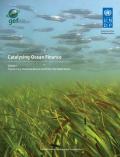This report describes the progress achieved in relation to sustainable development since 1992 and the gaps still remaining. It draws attention to a pressing environmental, social, economic and institutional situation. Above all, however, it highlights the vast potential for advancing economic management towards a more comprehensive model in keeping with the notion of inclusive and sustainable development.

The paper is a working document on the current situation, outlook, best practices and requirements concerning access to information, participation and justice regarding environmental matters in Latin America and the Caribbean.
There is consensus that the three access rights embody the core standards of transparency, equity and accountability in decision-making and are the foundation of environmental democracy and good governance. The link between good governance, environmental sustainability and the eradication of poverty and hunger has been extensively examined in the literature. The core argument is that reducing poverty and empowering the poor requires a receptive government (one that is open to access to information, participation and justice) and a healthy environment.
The importance of principles of access has also been recognized by the business sector. The paper takes note of two voluntary initiatives for private enterprise information transparency are the Global Reporting Initiative and the Extractive Industries Transparency Initiative.
Azerbaijan has made significant strides in improving its economy over the past decade, as it embarked on a market-based economy and recovered from a significant downturn following the breakup of the Soviet Union. As a result, the government is now looking to implement a policy for country’s transition to a low-carbon, resource efficient and socially inclusive economy. This study presents an assessment of Azerbaijan’s economy, looking at ways that will foster such transition.
This guideline provides practical tools for city planners and decision makers to reform urban planning and infrastructure design according to the principles of eco-efficiency and social inclusiveness. It includes case studies from the Republic of Korea, the Philippines, Japan and Sri Lanka.
